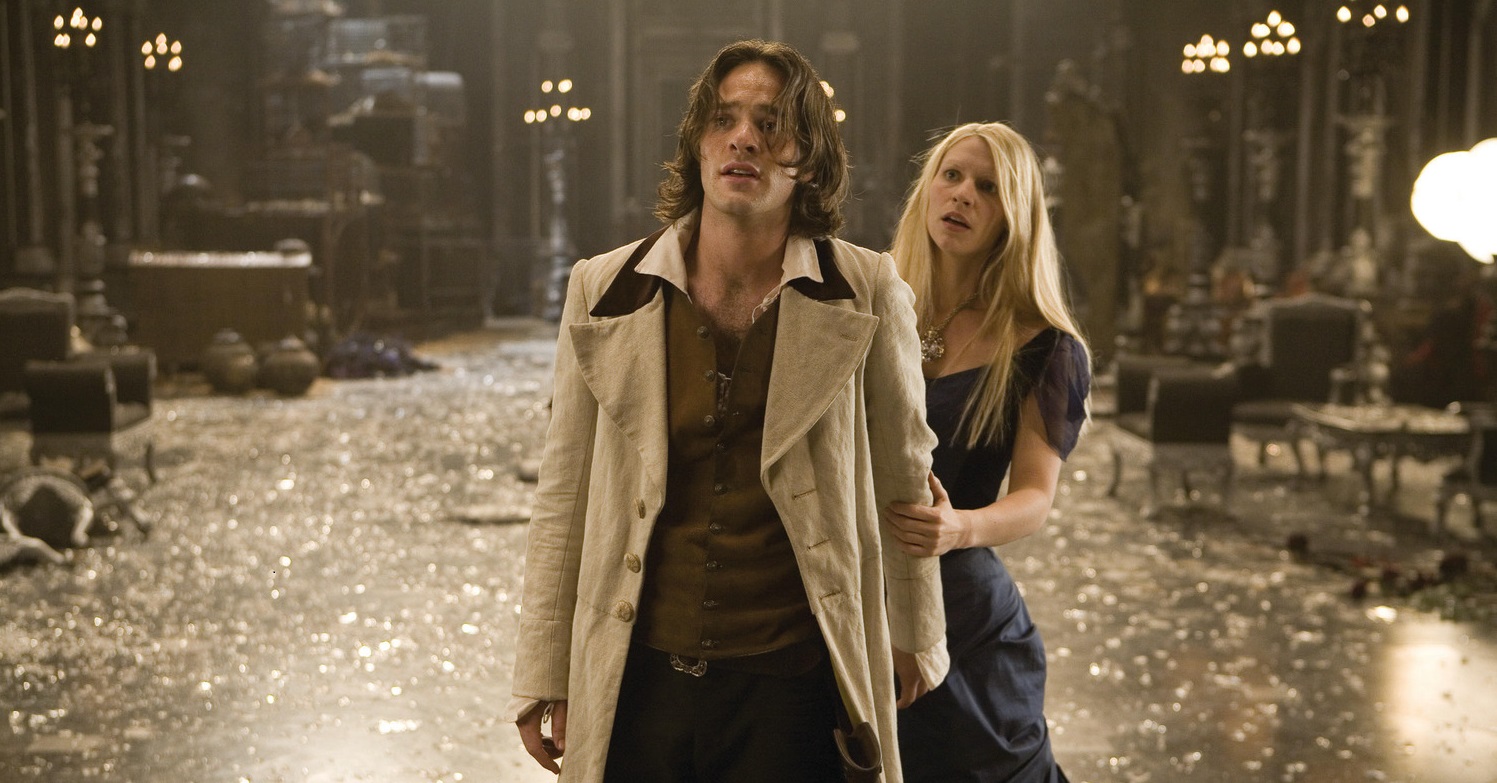Not every story needs to be invested with allegorical or profound meaning in order to communicate with the audience. This is something that Neil Gaiman understands all too well, as he is the modern master of spinning fairy tales, those classic stories that deal in archetype and broadly universal themes and morality, yet come across as fresh and innovative when flowing from Gaiman’s fingertips. Stardust is just one of those stories that ten years ago writing team Matthew Vaughn and Jane Goldman adapted to the screen as one of the most effortlessly whimsical films of recent memory.
However, whimsy doesn’t necessarily translate to simplistic plotting or a lack of emotional depth; it simply expresses how relatable the basic themes are to most audience members. In the provincial town of Wall, England, the awkward and immature Tristan (Charlie Cox) seeks to woo the local it-girl Victoria (Sienna Miller) by bringing her a star that has fallen from the sky. He must therefore travel through the neighboring kingdom of Stormhold—a mystical place that exists as an otherworldly expression of everything the mundane real world is not—to capture the star, which actually takes the form of a young woman named Yvaine (Claire Daines). However, also pursuing the star are a group of royal brothers, whose bloodright is invested in a jewel hanging from Yvaine’s neck, and a witch (Michelle Pfieffer) who wants to cut out Yvaine’s heart to restore her youth and magical abilities.
What’s remarkable about Stardust is its ability to take the basic outline of a hero’s romantic quest and play with the elements just enough to make for a new and interesting take. Tristan’s obvious character arc is that as he brings Yvaine back to Wall, he not only gains some much-needed maturity but is also rewarded with the love of a woman who is worthy of his affections, but the ways in which he grows are new and interesting. He saves Yvaine from an illusionary inn, is caught up in a prolonged stay with a secretly effeminate sky-ship pirate (Robert De Niro, giving one of the most charming performances of his career), and takes a transfigured trip as a rodent in the back of a witch’s traveling cart. The adventurous vignettes keep coming so that the narrative never feels stale, and many of the plotted conceits are so imaginatively different than anything in their fairy tale inspirations that their novelty is worth the experience alone.
But the emotional depth and subtle twists on old themes are what make Stardust uniquely charming in an age of corporate cynicism and manufactured sentimentality. The witch Lamia is a delightfully sinister presence who is rather self-aware and vain, but Pfieffer walks a tight line in her performance that neither makes it unreasonable to believe that she could learn the error of her ways or tip over into extreme evil if given the right push, which makes for a superbly executed fake-out in the film’s finale. That emphasis on true and hidden selves also plays into the lives of the sky pirates, who put on a shallow and performative display of masculinity to build a fearsome reputation, but in actuality they all just follow the lead of a captain they all know to revel in feminine delights. It’s a recurring theme that rings empathetically honest for an emerging modern age of emotional transparency.
Analysis aside, though, Stardust is just a very smartly constructed story that taps into a need for relatability and familiarity. It doesn’t seek to change the world or cash in on the prestige of its source material’s author’s pedigree, but instead focuses on giving as honest and entertaining a film as possible. Maybe that’s all we can ask of a film like this. At the very least, it’s all we should ask of a fairy tale, because anything more would simply be too much.













